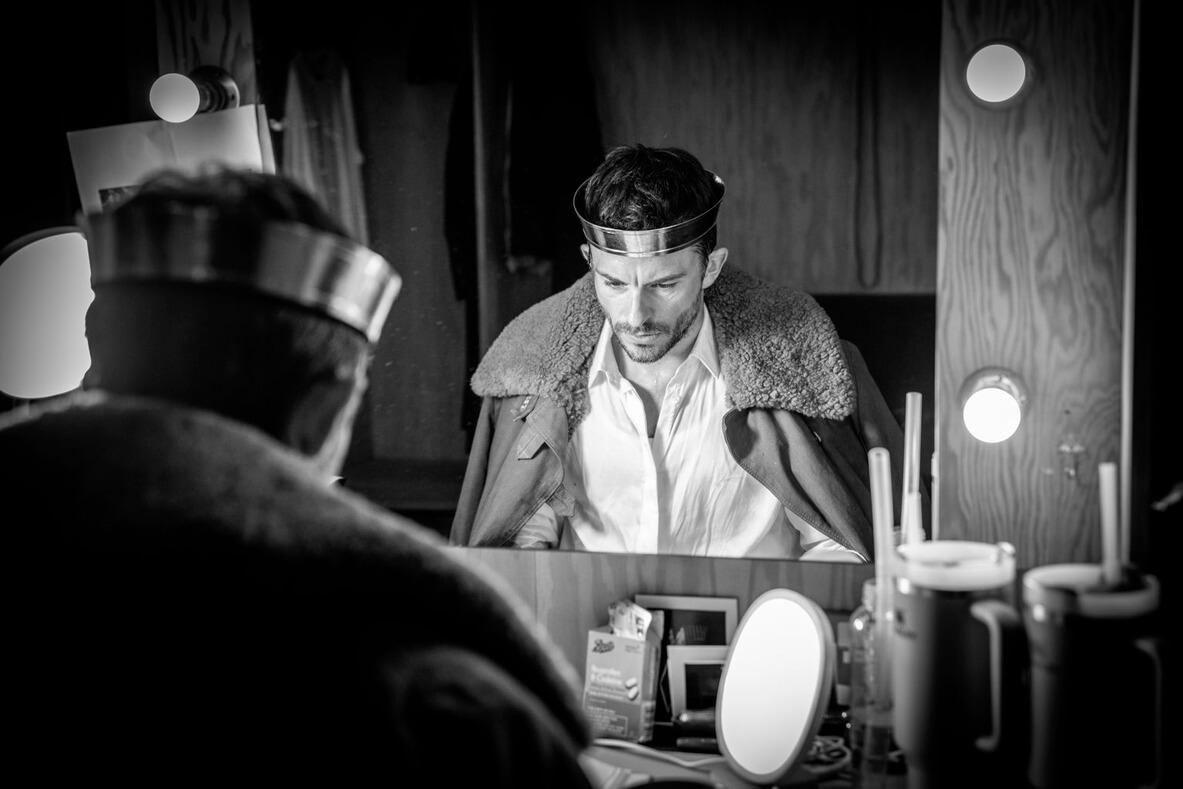In the opening scenes of this latest instalment Falstaff is dying, off stage and the former Prince Hal is now the handsome, capable Henry V carefully weighing up the justifications for invading France.
Invade he does, at Agincourt. If you don't know the outcome of that battle, and I didn't when I first saw the play as a teenager, I won't spoil things for you.
Henry V is a much loved play, particularly popular in war time, full of stirring moments designed to install pride in our tenacious national character. There's little moral complexity and directors and leading men can choose to play the young king as a blood thirsty adventurer, a clever politician or a cynic. In the title role, having played the teenage King in the prequel, Alex Hassell allows the adult Harry moments of considerable self-doubt as he develops the back bone to be an effective leader. He's a rather colourless figure here, cajoling rather then inspiring his troops and countryman. Luckily Hassell has film star good looks which considerably bolsters his stage presence. He's required to do a lot of yelling in battle and at last nights press performance his voice sounded strained and tight in the moments of heightened emotion.
The production is played out on the same set as the previous history play instalments. It comprises of various curtains of fine chains that shimmers with projected architecture features or fly out to allow more homespun environments to be trucked forward.
The costumes are a striking mishmash of military-ware down the centuries with characters in Medieval costumes rubbing shoulders with yobs in biker gear, officers in WW1 tin hats and even a courtier dressed like Stalin.
It's a production that's in a hurry, humour is often found in pronouncements bring interrupted by fanfares or the next lines before they're through. Oliver Ford Davies plays our narrator, the chorus, as a shuffling, irascible lecturer who's also urging us to keep up with the pace of the action.
It's a comfortingly old fashioned production firmly based in the traditional conventions of middle aged men, strutting on in boots, gazing into the middle distance, feet apart, and declaring their business before striding off to be replaced by the next lot. It's a style of production the RSC have been doing for generations. The trouble is it's not likely to get anyone's pulse raising.
Some Shakespeare plays chime with the year in which they're revived. There's a valiant attempt by Jeremey Paxman in a programme note to link themes in the play to the current crisis in Syria and Tony Blair's policy on Iraq but that seems rather tenuous to me.
With it's tedious, loutish foot soldiers and boorish blustering officers, fear of defeat and hunger for victory, this just isn't a play that's particularly relevant at the moment. It's revived not because it has something to tell us but simply because it's the next script in the cannon.
And that's exactly how this production feels, it has its fair share of new ideas and perfectly serviceable performances, it's just all rather pointless. The RSC are just doing their duty.

 The Royal Shakespeare Company's (RSC) popular and critically acclaimed production of Henry V has transferred from the company's home in Stratford Upon Avon to London's Barbican Theatre, where it's promoted as the latest in their cycle of history plays.
The Royal Shakespeare Company's (RSC) popular and critically acclaimed production of Henry V has transferred from the company's home in Stratford Upon Avon to London's Barbican Theatre, where it's promoted as the latest in their cycle of history plays.



 Things are changing at The Old Vic.
Things are changing at The Old Vic.